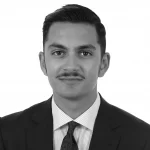Thursday, May 25 • – 8
What modes of seeing are possible during a catastrophe? Ernst Jünger, soldier, writer, and philosopher, endeavored to address this question throughout his entire body of work, as demonstrated by Edgardo Cozarinsky in his film La Guerre d’un Seul Homme (1982).
Having personally experienced trench warfare on the Western Front, Jünger affirmed that modern technology brought forth more than just novel instruments and tools—it ushered in an entirely new way of being in the world. This novel configuration of reality naturally entailed a distinct way of perceiving, a new way of seeing, inseparable from technological advancements, which found expression in the utilization of cameras to capture the imagery of war.
The representation of individuals in the trenches through photography and film motivated Jünger to engage in a series of contemplations on the manner in which reality was perceived in light of these inventions. The human eye, in collaboration with the camera lens, had the capacity to seize an instant and immortalize it in a photograph, or endlessly reproduce it on a film reel. This necessitated a new anthropology, befitting the era Walter Benjamin referred to as the “age of mechanical reproduction.” Jünger’s achievement lay in unveiling the understanding of the human being that underpinned these new technological instruments and, moreover, in questioning it, which in turn inspired Heidegger’s contemplations on technology.
The concern regarding seeing, therefore, represents a fundamental inquiry in both cinema and philosophy. It cannot be addressed without duly considering the influence of the technological apparatuses that establish the conditions enabling our experiences. The objective of this paper is to delve into this inquiry and reveal that the challenge of seeing posed by technology persists today, unsolved, awaiting confrontation.
Martín Heredero Campo works as a philosophy teacher at St. Augustine School in Valladolid, Spain. His research revolves around the philosophy of technology, phenomenology, nihilism, existentialism, and Ernst Jünger.
